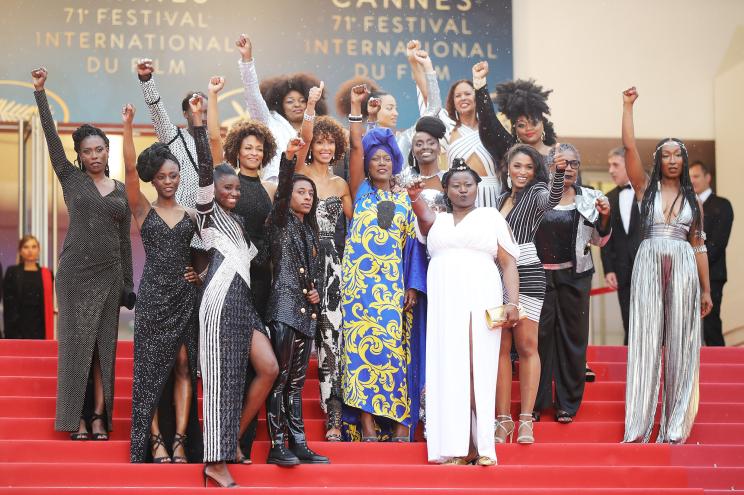Frustrated with the lack of diversity and inclusion in the French film industry, 16 black actresses took to the red carpet in Cannes on Wednesday night, staging a protest against racism just days after 82 women, led by Cannes jury president Cate Blanchett, launched their own call for gender equality.
Led by actress Aïssa Maïga (“Bamako”), the group struck a defiant note while promoting a new book, “Noire N’est Pas Mon Métier (My Profession is Not Black),” which Maïga co-authored.
Speaking with Variety, the actress called it “a historic moment” as 16 black women linked arms on the red carpet outside the Palais for the first time. “It was beyond my wildest dreams,” she said. “For 20 years, I’ve been acting, and I’ve never felt like this.
“This was a statement we wanted to make to the entire world.”
The book features candid stories about the prejudice faced by black actresses in the French film industry. In one instance, Nadège Beausson-Diagne, who starred in French megahit “Welcome to the Sticks,” described how she’d been asked by a director if she spoke “African.”
She also recalled being told she wasn’t qualified to play a lawyer and was “not African enough to be African.” At one casting call she was told, “For a black, you are really very intelligent. You should have been white.”
Braving the rain and cold, the actresses were glamorously decked out in designs by Balmain creative director Olivier Rousteing, who recently dressed Beyoncé for her show-stopping Coachella performance. They were joined at the Palais by Burundian singer Khadja Nin, who’s sitting on the feature film jury at Cannes this year.

The group included Maïga, Beausson-Diagne, Mata Gabin, Maïmouna Gueye, Eye Haïdara, Rachel Khan, Sara Martins, Marie-Philomène Nga, Sabine Pakora, Firmine Richard, Sonia Rolland, Magaajyia Silberfeld, Shirley Souagnon, Assa Sylla, Karidja Touré and France Zobda.
On Thursday, the group held a press conference in Cannes to discuss the bias they’ve experienced in the French film industry.
Maïga said she felt “extremely strong” to stand in solidarity with the other women, calling it a “strength that we were given from our parents, and the generations before them … that we can pass down to our children.”
She stressed the importance of using the Cannes platform to “change structures in society” and the French movie industry, calling for funding mechanisms that will promote diversity in film so “that we start to see the real France on the screen.” “For me, the most important thing is that this collective of 16 women will become a movement,” she said.
Maïga said the book, which was released earlier this month, has already sold out in France, while sparking a wave of support on social media. “We realize this is the moment,” she said. “Everybody’s out there rooting for us.”








